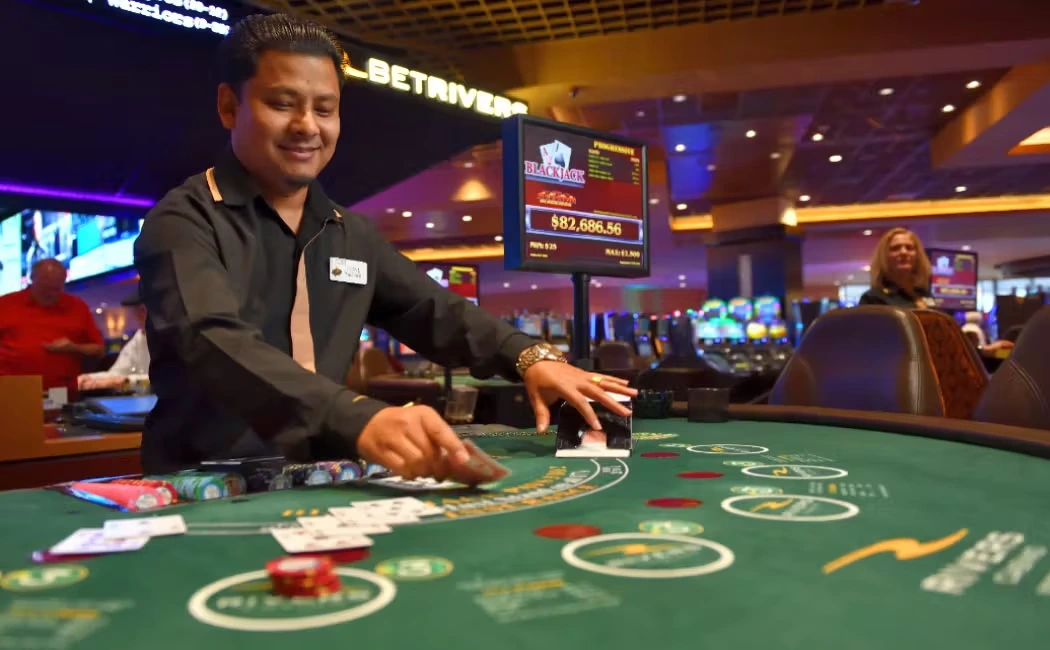Reflections Beyond the Game
When players approach gambling, especially through online platforms like Librabet casino, they experience subtle yet powerful shifts in self-perception. The person who begins gambling often isn’t the same one who actively plays or reflects afterward. This shifting self-image offers deep insights into player psychology, revealing how emotions, expectations, and outcomes profoundly shape identity.
This article explores these three distinct self-images – the player before, during, and after gambling – shedding light on the psychological transformations involved.
Before the Game: The Optimistic Self
Anticipation and Confidence
Before playing, players usually see themselves as hopeful and confident. Expectations of success and excitement shape their self-image positively.
Identity and Aspirations
Players often visualize an idealized self, successful and confident, projecting future wins and emotional rewards, fueling anticipation and optimism.
Psychological Dynamics Before Playing
Cognitive Bias and Illusions
The pre-game self often falls prey to cognitive biases such as overconfidence or the gambler’s fallacy, creating an overly optimistic identity.
Emotional Preparedness
Players mentally prepare by building an emotional narrative of excitement and potential, enhancing their initial self-perception as capable and lucky.
During the Game: The Emotional Rollercoaster Self
Immersion and Emotional Intensity
When actively gambling, self-perception shifts toward intense emotional engagement. Players often identify with the excitement, thrill, and emotional fluctuations of the game.
Reactive and Impulsive Identity
The “during-game” self is reactive, driven by moment-to-moment outcomes. This impulsive identity contrasts sharply with the controlled optimism of the pre-game self.
Emotional and Psychological Changes Mid-Play
Heightened Emotional States
Emotions run high during active gambling sessions, profoundly influencing self-perception, often causing players to see themselves as either invincible or vulnerable, depending on outcomes.
Loss of Self-Control
Players might experience reduced self-awareness, where their identity becomes closely tied to the immediate gambling experience, overshadowing broader life contexts.
Expert Opinions on Self-Image During Gambling
Dr. Sophia Christodoulou, Behavioral Psychologist
“During gambling, players often experience significant identity shifts. They move from rational self-assessment to emotionally driven self-perception, heavily influenced by immediate game outcomes.”
Nikos Stylianou, User Experience Analyst
“Our platform recognizes these emotional identity shifts, designing user experiences that responsibly balance excitement and self-awareness to help players maintain control.”
After the Game: The Reflective and Critical Self
Post-Play Self-Assessment
After gambling, players frequently experience introspection and critical self-assessment. Their identity becomes reflective, often accompanied by heightened emotions like regret or pride.
Emotional and Psychological Consequences
The post-game identity can carry emotional burdens such as shame, guilt, or anxiety. Alternatively, it may reinforce positive feelings of achievement and satisfaction.
Coping Mechanisms Post-Gaming
Rationalization and Emotional Adjustment
Players may rationalize outcomes to align their post-game identity with self-perceived character traits or emotional expectations, helping manage emotional conflicts.
Seeking Validation and Support
Many players actively seek emotional validation and social support post-play, aiming to reconcile their self-image with external perceptions and feedback.
Real-Life Reflections: Players Share Their Stories
Georgios, 38, Limassol
“Before gambling at casino, I see myself as confident. But afterward, especially following losses, my reflection feels harsh. Reconciling these two selves is emotionally challenging.”
Elena, 29, Thessaloniki
“While playing, I’m completely immersed. Afterward, reflecting on my decisions can be tough. It’s like seeing a different person in the mirror – one I’m not always proud of.”
Casino’s Role in Supporting Healthy Self-Reflection
Promoting Emotional Intelligence
Casino actively promotes emotional intelligence and self-awareness through educational resources and reflective prompts, helping players manage self-perception healthily.
Responsible Gambling Measures
By providing robust responsible gaming tools, casino assists players in maintaining consistent and realistic self-assessment before, during, and after gameplay.
Societal and Cultural Influences on Self-Perception
Social Expectations and Self-Identity
Cultural attitudes toward gambling significantly influence players’ self-perception, shaping how they judge themselves before, during, and after gambling experiences.
Changing Cultural Narratives
Promoting societal understanding of gambling as a form of entertainment rather than a moral failing reduces negative self-perceptions, helping players maintain healthier self-identities.
Strategies for Managing Self-Perception Shifts
Mindfulness and Emotional Awareness
Practicing mindfulness helps players maintain emotional balance, reducing drastic self-perception shifts and promoting healthier reflections across gambling experiences.
Structured Gaming Routines
Establishing structured and responsible gambling routines supports consistent self-perception, avoiding extreme emotional identity shifts caused by impulsive decisions.
The Importance of Open Dialogue and Support
Communicating Experiences
Encouraging open dialogue about gambling experiences helps players maintain realistic and emotionally healthy self-perceptions, fostering emotional resilience and understanding.
Utilizing Support Systems
Professional support systems and peer groups provide necessary platforms for sharing experiences, offering emotional validation and mitigating harmful self-perception distortions.
Conclusion: Reconciling the Reflections
Players’ self-perceptions before, during, and after gambling are fluid, heavily influenced by emotions, outcomes, and societal attitudes. Acknowledging these shifts and understanding their psychological underpinnings empower players to manage their gambling behaviors responsibly and healthily.
At casino, recognizing and supporting these identity shifts through education, emotional intelligence tools, and responsible gambling practices remains central. By doing so, casino fosters a balanced approach to gambling, helping players maintain a consistent, positive self-image regardless of game outcomes.

